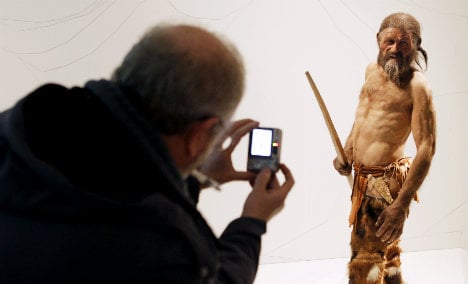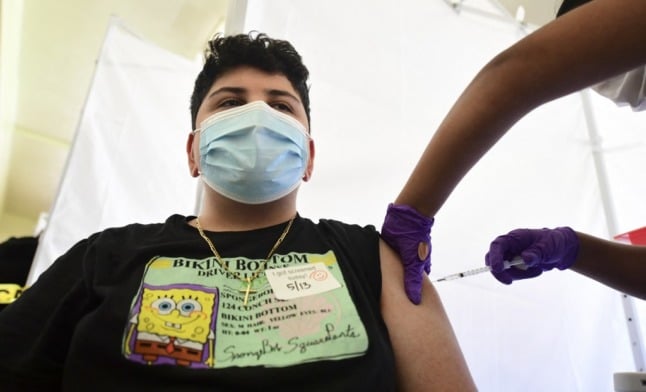Pre-existing CT scans were used to make the resin replica which was then sculpted and hand-painted by US artist Gary Staab over many months, the South Tyrol Museum of Archaeology, where Oetzi is housed, said.
“The reconstruction of the hands was a challenge, since they could not be captured on CT scans,” the museum in Bolzano, northern Italy said.
Three replicas were made, one of which will be part of a travelling exhibition that will tour North America, starting in the North Carolina Museum of Natural Science in Raleigh in October 2017.
The second and the third replicas will be used for teaching purposes at the Cold Spring Harbor DNA Learning Center in New York (DNALC).
In what became an archaeological sensation, Oetzi's mummified remains were found high in the Oetztal Alps – hence the name – by hikers in September 1991 after being preserved in the ice since the Stone Age.
Clothing and equipment including an axe and a backpack found at the site, as well as the contents of Oetzi's stomach, his DNA and his 61 tattoos gave scientists highly valuable insights into human life at the time.
He died a violent death, killed by an arrow, around the age of 45. He was 1.6 metres (five foot, three inches) tall, weighed 50 kilos (110 pounds), had brown eyes and was lactose intolerant.
ITALY
Italy’s 5,000-year-old ‘iceman’ brought to life by 3D printer
Scientists presented on Wednesday a life-sized copy, made using a 3D printer, of Oetzi the mummified 5,000-year-old "iceman" found in the Alps 25 years ago.
Published: 21 April 2016 08:11 CEST

Oetzi, Italy's 5,000-year-old iceman, has been recontructed using a 3D printer. Photo: Andreas Solaro/AFP
Url copied to clipboard!


 Please whitelist us to continue reading.
Please whitelist us to continue reading.
Member comments